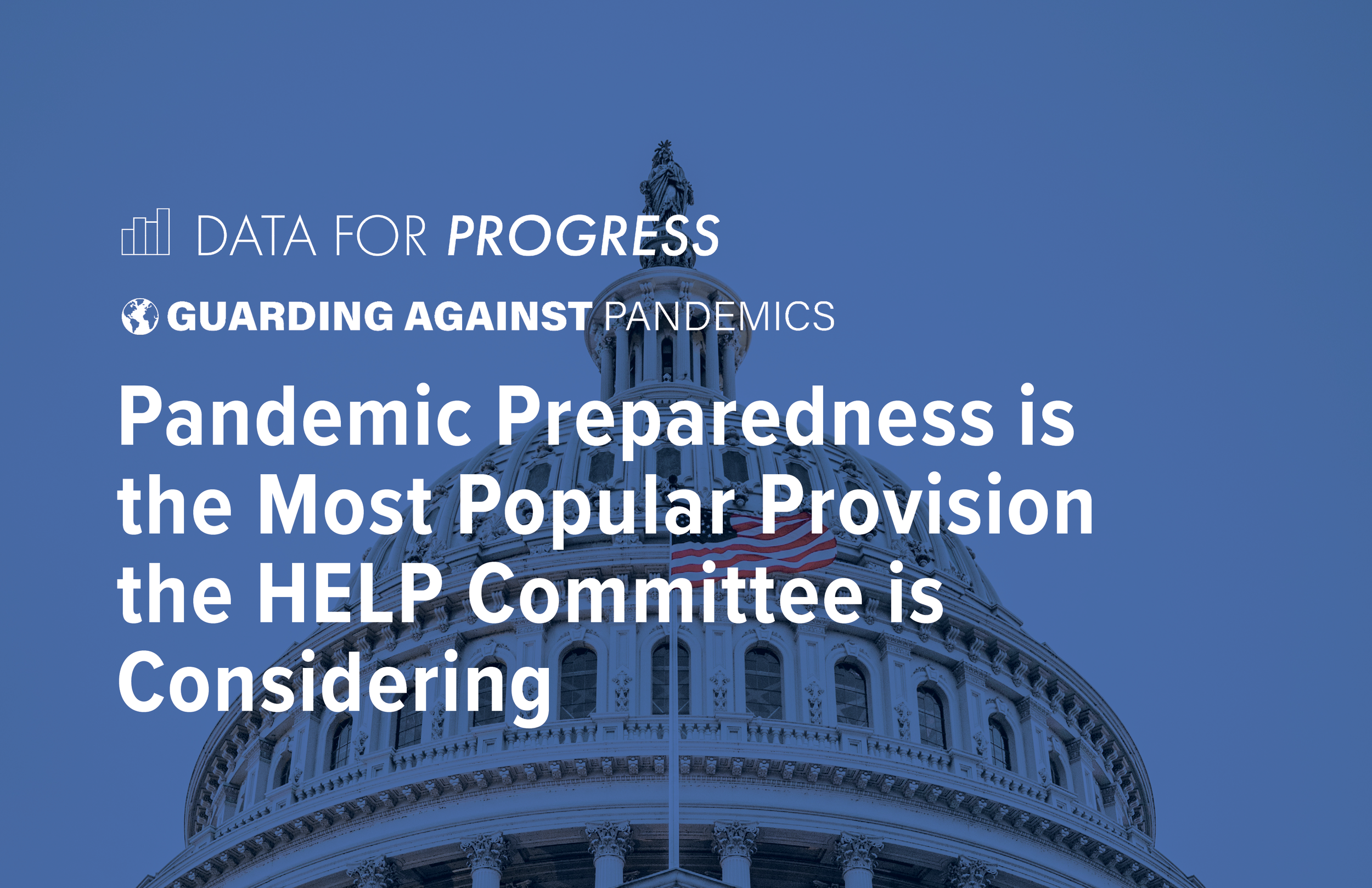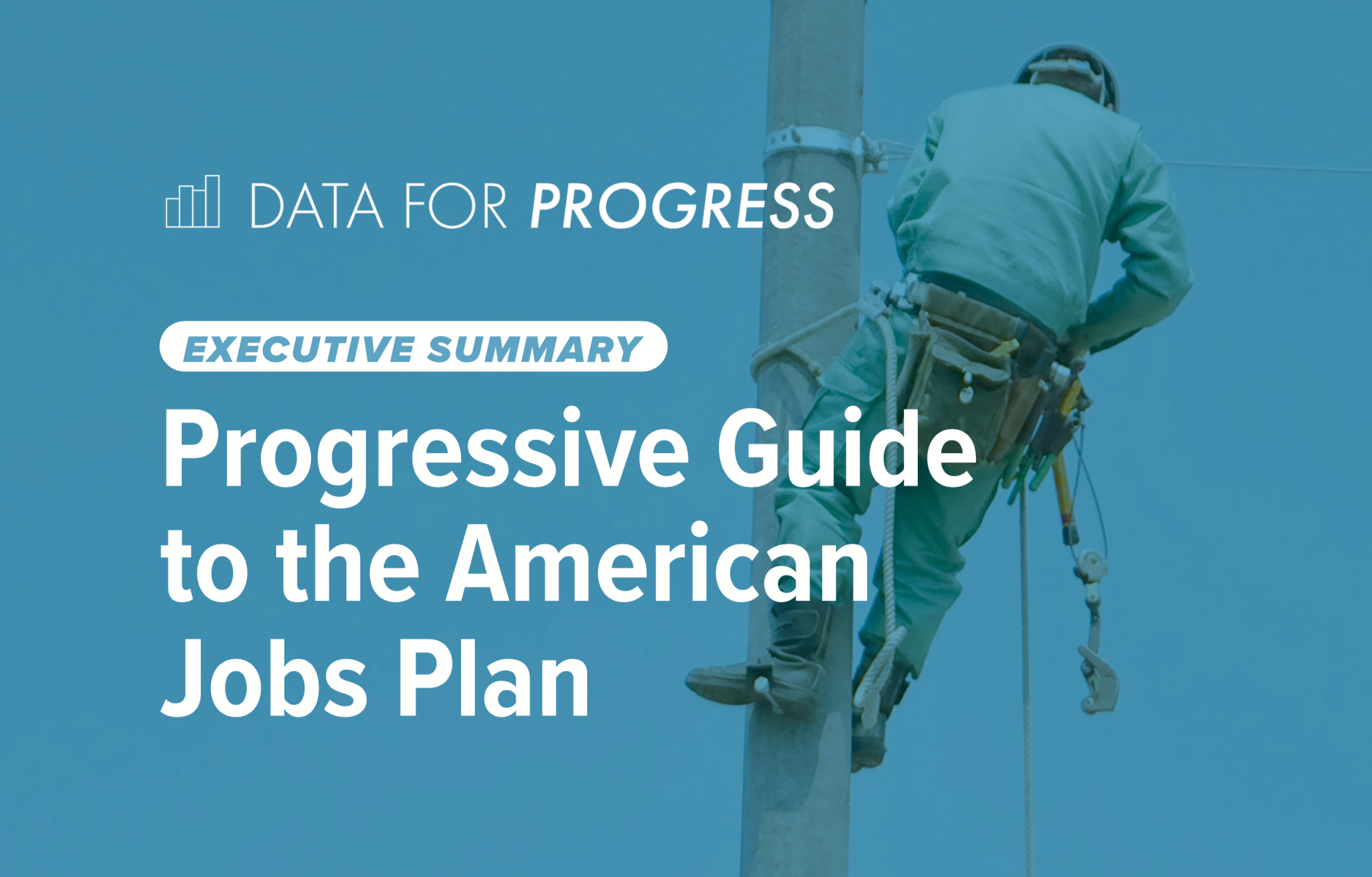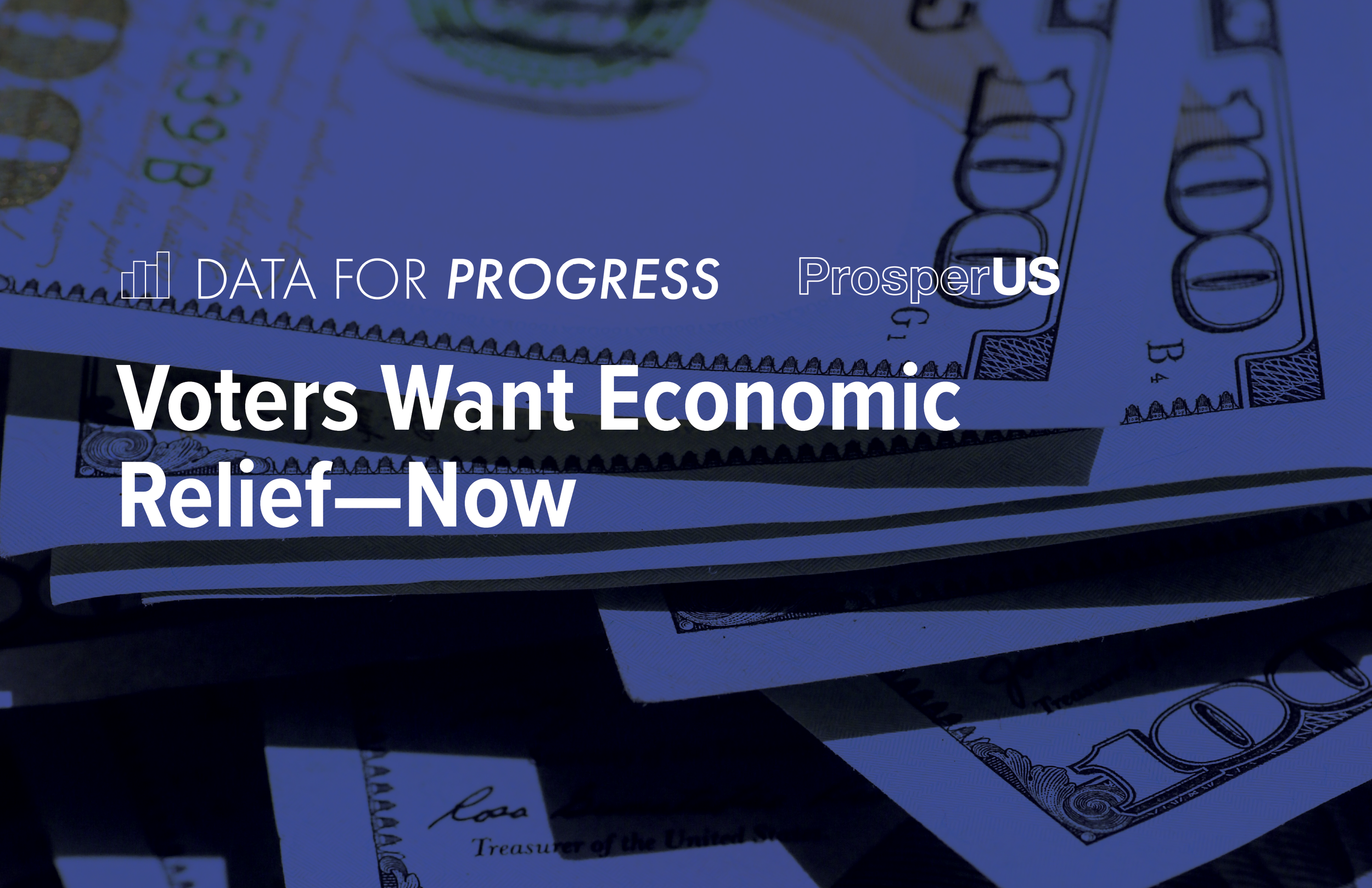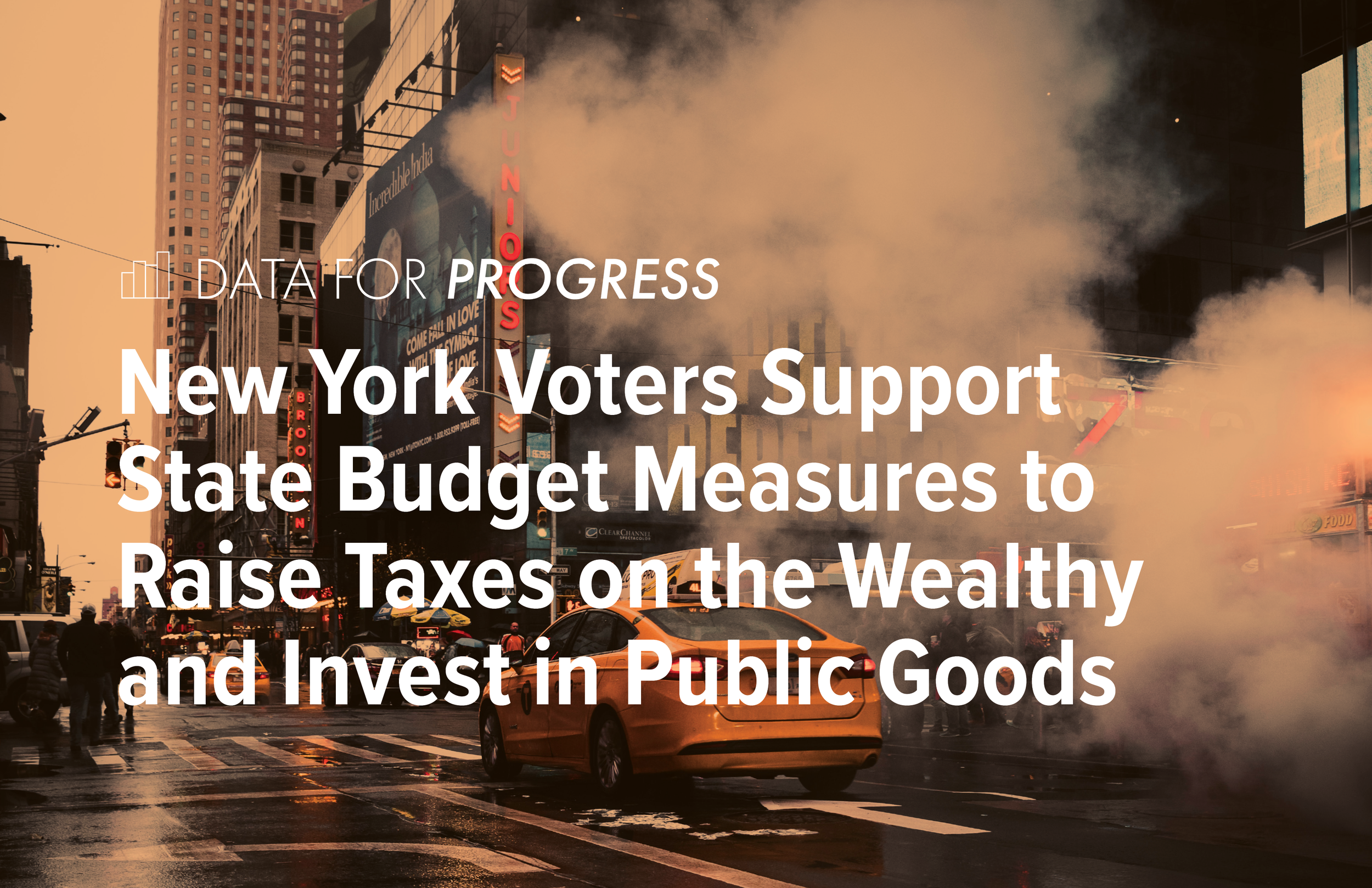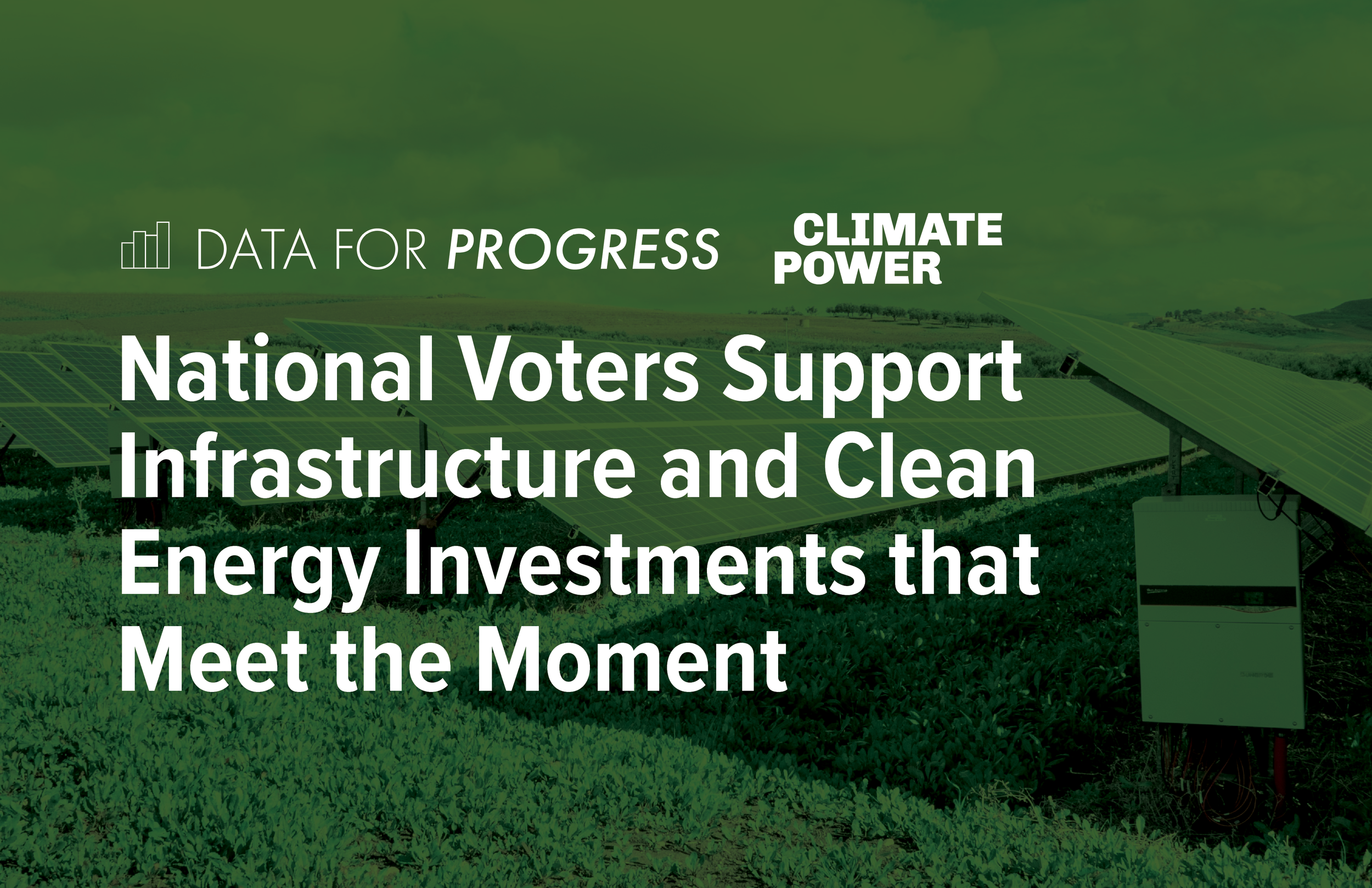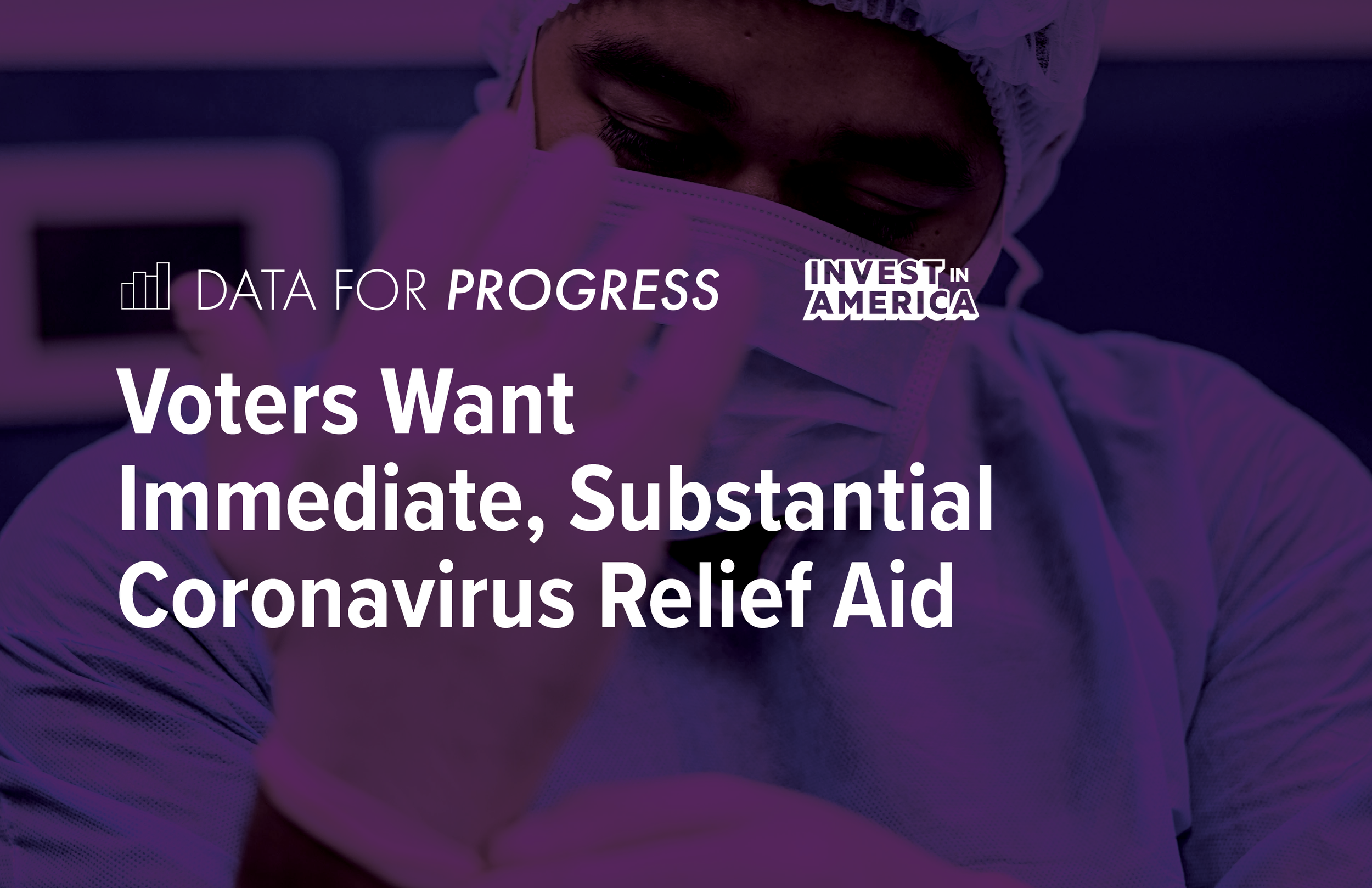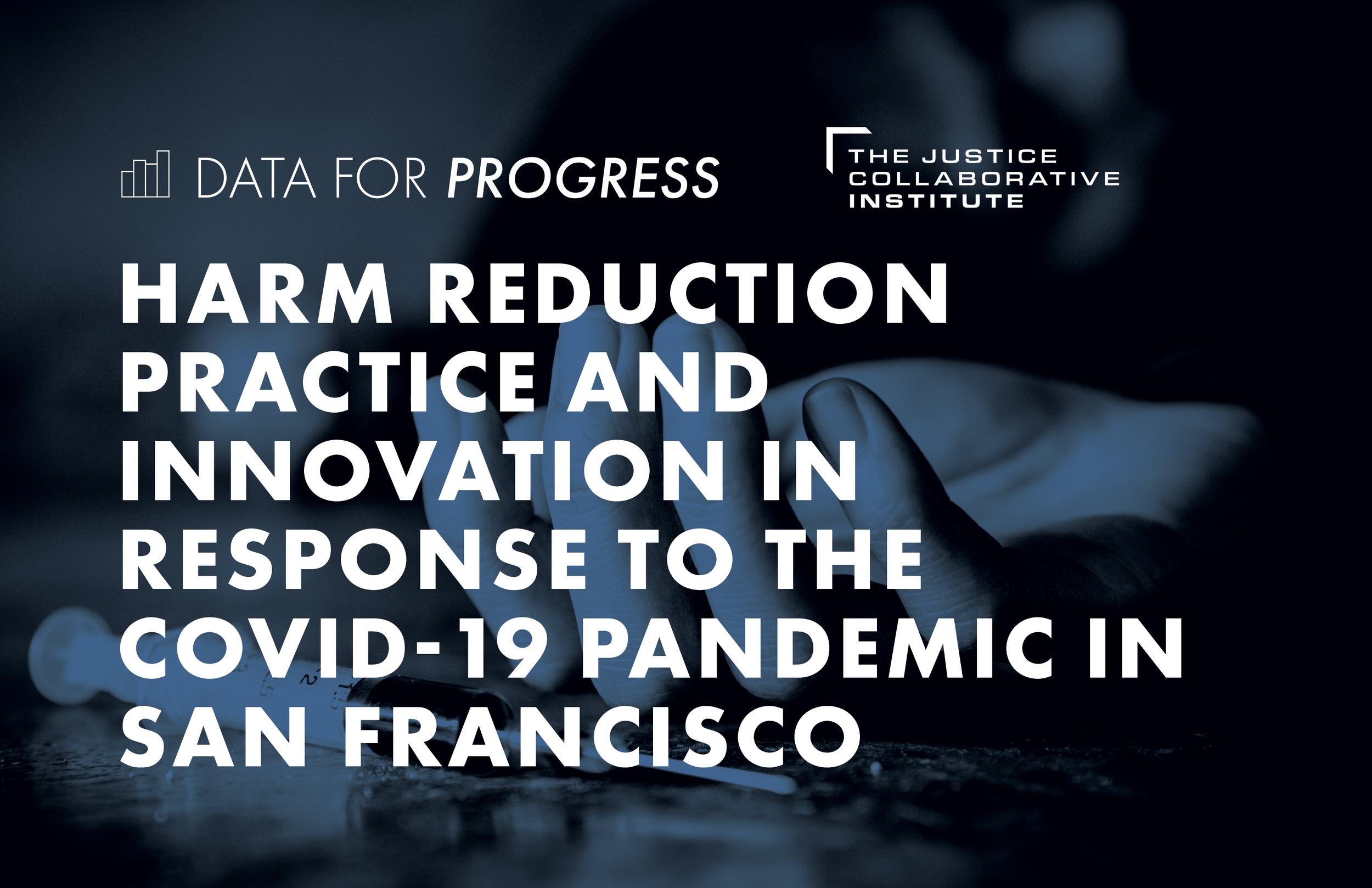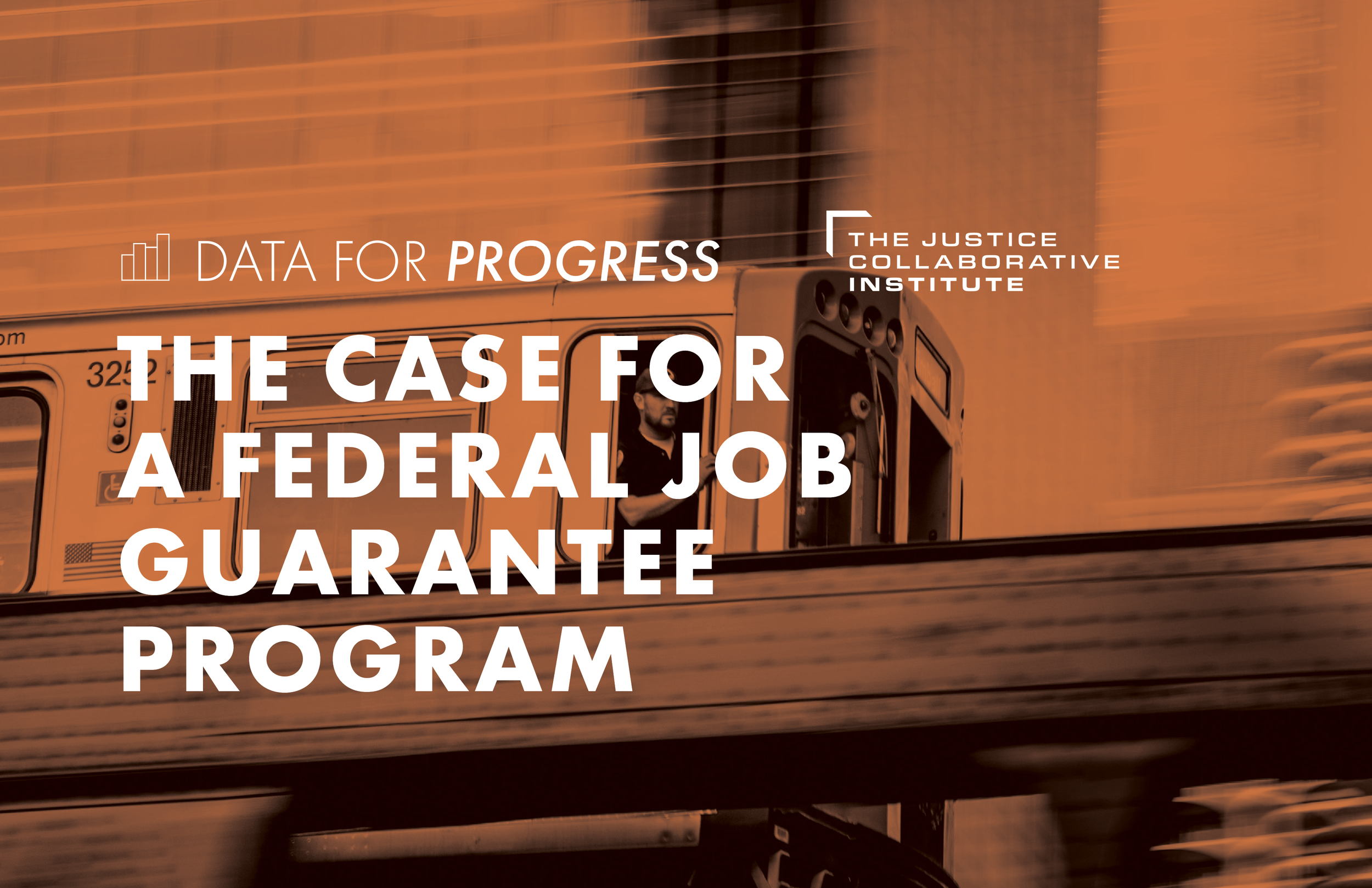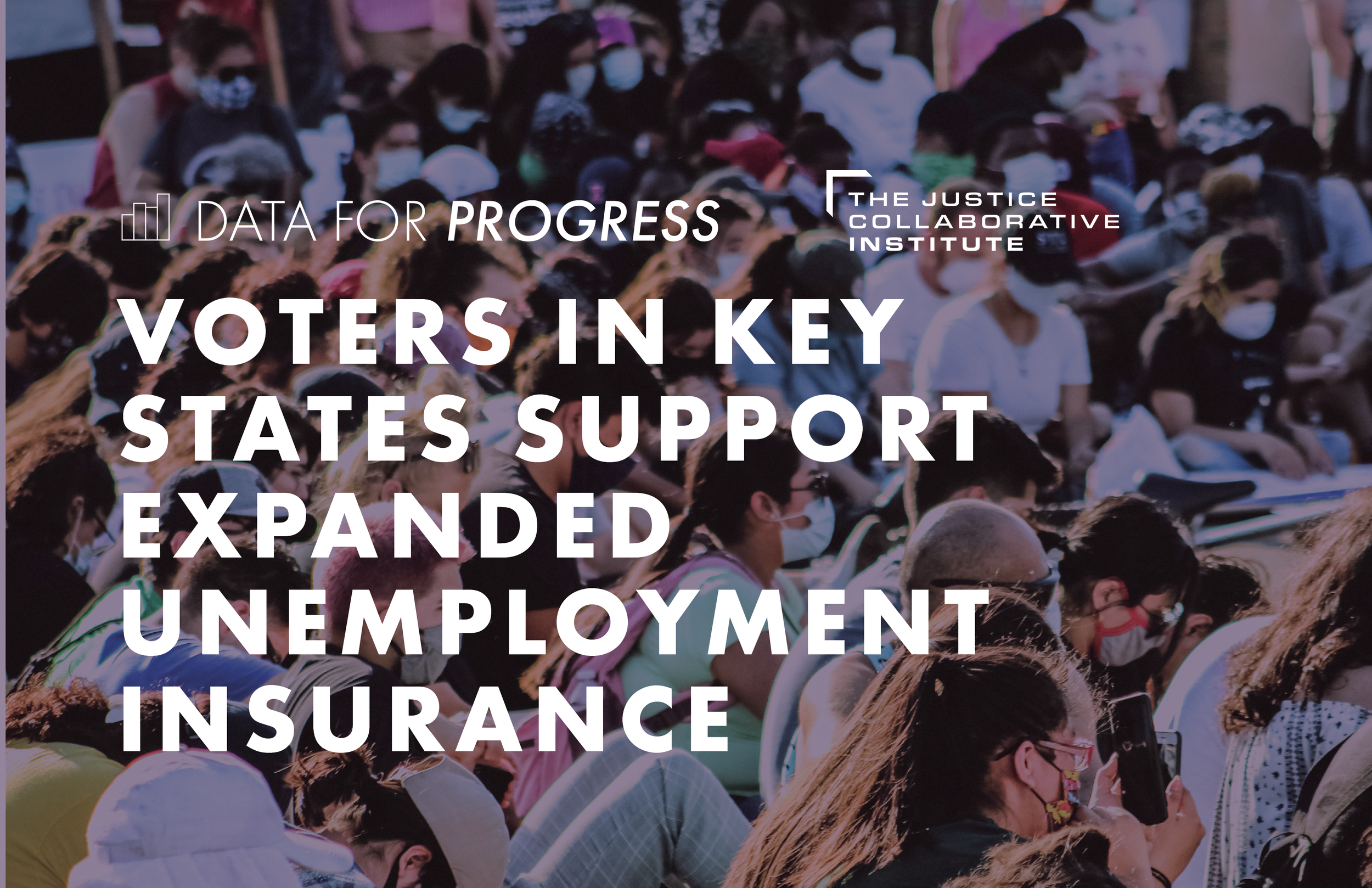We find that pandemic preparedness is both the most popular policy the HELP committee is currently considering, as well as the policy likely voters see as most important.
Read MoreAs part of a survey of likely voters nationally fielded from late July into early August, Guarding Against Pandemics and Data for Progress tested support for investing $30 billion in pandemic preparedness funding.
Read MoreAs part of a July survey of likely voters nationally, Data for Progress and Guarding Against Pandemics conducted further research into the attitudes towards an investment in pandemic preparedness.
Read MoreA guide to the key pillars of the American Jobs Plan and how they compare with other progressive proposals.
Read MoreData for Progress conducted a late-May survey of 1,304 likely voters nationally to assess voter attitudes towards global vaccination efforts. Our survey was centered on findings from a focus group conducted by David Binder Research with voters in Limerick, Pennsylvania on May 6.
Read MoreA strong majority of likely voters want additional economic relief legislation passed immediately.
Read MoreLast year, New York’s state budget was a widely criticized failure.
Read MoreNow that the American Rescue Plan has been signed into law, both the White House and leaders in Congress are planning new legislation to enact President Biden’s Build Back Better agenda.
Read MoreWe find that specifying aid around pandemic relief measures boosts support for state and local aid as part of a pandemic relief package.
Read MoreAs part of a January 2021 survey, Data for Progress and Oxfam America asked 1,140 likely voters nationally about their attitudes towards coronavirus relief broadly and, more specifically, how vaccines should be distributed.
Read MorePresident Biden’s proposed $1.9 trillion coronavirus stimulus package offers much needed support to American workers, frontline workers and small businesses.
Read MoreAmid a significant spike in deaths among individuals experiencing homelessness in San Francisco, including a rise in overdose deaths, expanded harm reduction practices and substance use treatment during the COVID-19 pandemic have shown promising results in reducing death and harm from opioid use.
Read MoreThe coronavirus pandemic has brought the country to the brink of economic collapse.
Read MoreAs the coronavirus has spread throughout Florida, not all communities in the Sunshine State have been impacted equally.
Read MoreIn 2017, the Consumer Financial Protection Bureau (CFPB), issued the request for “Information Regarding Use of Alternative Data and Modeling Techniques in the Credit Process.”
Read MoreAt the end of July, the expanded unemployment insurance (UI) benefit -- passed as part of the “Coronavirus Aid and Relief Act” (CARES) -- expired.
Read MoreThe medical and economic hardships produced by the coronavirus pandemic can be directly traced to extreme consolidation and monopolization.
Read MoreCOVID-19 has caused intertwined health and economic crises: the virus threatens the health of millions of Americans, and the resulting economic harm is devastating, especially for working people and families.
Read MoreCongress has the ability to provide comprehensive aid to households in the next stimulus package.
Read MoreVoters support a series of progressive proposals that could be included in a future economic relief package.
Read More
